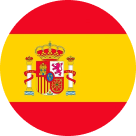Are slogans translatable?
The translation of slogans, catchy advertising phrases or simply memes, although superficially a translation activity, requires very different, creative qualities from the translator. This work cannot be evaluated word for word or by character, because slogans are essentially concentrations of meaning couched in a catchy and expressive form.
There are not many translators who dare to undertake such activities in the market. The thing about advertising is that it is fleeting. Only occasionally, it manages to come up with a truly ingenious catchphrase, such as «aromaoxamit» in a coffee commercial. It is impossible to translate this expression from Ukrainian into one word, namely: «the amazing taste and aroma of coffee». It’s not just translators or agencies that are involved in translating slogans and memes; the customer’s role is very important. It’s the client who decides on the direction and the idea, and translators translate it into words.
If you have any questions, you can consult us by phone:
+375 44 768-02-88
+375 29 257-14-58
You can find the cost of services in the section Prices
It often seems that a successful phrase about a product or service is a fleeting and short-lived affair. Well, in fact, that you can so pore over a few words? But if we try to come up with something like that ourselves, the result will be sad. So the agency can spend months researching market needs, customer tastes, and product features, hoping for an epiphany.
If it is not a question of creating a slogan, but of translating it, the task is simplified, although not always. Translators are known to be creative and not capricious. With respect and the right motivation from the agency, translators are able to produce, if not brilliant, then consistently sellable slogans. The aim is not just to translate the slogan as close to the original as possible, but to convey a feeling that will resonate in the heart of the target audience. This applies first and foremost to the national characteristics and traditions of a particular nation. For example, a Japanese will not understand a Caucasian’s warm feelings towards mutton, or a Ukrainian’s benevolent toasts.
Another thing about translation of slogans is language peculiarities. English is less expressive than for instance Russian, but it is more laconic and precise. In advertising, the latter two qualities are valued. For example, the expression Nike «Just Do it» can of course be translated «Just do it», but to a non-American audience this slogan does not carry the sense of freedom emanating from the company’s name. Nike is the name of a Greek goddess who helped win battles. So Just Do It — sounds like «With Nike you’re a winner!», reflecting the philosophy of this renowned sporting goods manufacturer.
Recently, the term transcreation has become fashionable, and another word is close to it: «localisation». We «localize» everything foreign, i.e. adapt it for local understanding. But translating slogans is not localisation, or anything like that, it is pure creativity, taking into account place, time and circumstances, of course.
In fact, the translation is even harder to do than coming up with the original. A paradox? Not at all. After all, when creative writers create slogans or memes, they have unlimited resources at their disposal and are open to all perceptual boundaries (of course, within their terms of reference). But when a translator takes «This should go over big» and tries to adapt it for the Spanish audience, it collapses. The commercial phrases themselves are often simple, but how do you give them a punchline that will «hook» the audience? Certainly not «Blue water» in Ukraine, which is similar in sound to the word «vomit».
In the above example, it was a real order from McDonald’s for a Western agency. Clearly, the Big Mac needs to be even bigger than before. But how do you get the message across to an audience that can’t be categorised? It could be Spaniards living in the mid-western US transiting past colourful Big Mac posters somewhere in Louisiana. Never mind the Spaniards, when in Kentucky alone, you’ll easily run into Cubans, Mexicans, Argentines, Venezuelans, Ecuadorians and a dozen other nations large and small. It’s impossible to get tied into a geographical or national context, and yet, it has to be done. In just two or three words, «It needs to be even bigger» and that’s it.
The subtlety with McDonald’s is that its burgers are called the same thing in different countries. We won’t see a Grande or a Gigante Mac. In other words, you can’t play up the size with the traditional word ‘big’. But the idea in the expression big Mac (that’s right, with a small letter «big») is to emphasise not only the size of the product, but also to accentuate the prestige of the one who eats it. For example, in Cuba, if someone praises you, they say, «Cosa mas grande», meaning, «well done. But outside the country, the phrase can be perceived as banal. So we found a way of satisfying all our Spanish-speaking customers: This should go over big — Esto va en grande (This will be grand). As we can see, a literal translation of a slogan into another language does not always have to apply.
Another example, again related to McDonald’s, by the way. The ordered slogan sounded like Refreshingly Real. Was it about a new hamburger? Everyone was at a loss to guess, until it became clear that it would be an advertisement for a new fruit smoothie. Many believe that smoothies were invented by Americans. Let’s not argue. One thing is indisputable: in no other country would a motorist specifically stop at a roadside café to buy a glass of smoothie as deep as the Grand Canyon. Americans love everything big. But how do you express this love of big and fresh and dairy at the same time in advertising?
Let’s not bore the reader with an exhausting selection of common expressions like frappé, smoothie, batido and malteada. They all mean fruit cocktail and milkshake. Some «juicy» words like raspado or slushie were discarded because Mexicans might think they were being offered fruit scraps. Eventually, a neat solution was found in the form of: Refreshingly Real — Verdaderamente refrescantes, a fresh fruit cocktail. The customer was satisfied.
We used these examples to show two different kinds of slogans for the same McDonald’s company. The first one emphasised the greatness and grandeur of a Big Mac. The second one just called the drink what it is. And at the same time, the end result was a success.
The payment for this labour cannot come from the value of two or three words. The concept of translating slogans rises to the heights of skill of translators, because sales phrases can even outlive the product they advertise. They are so ingrained in our minds that they are used to judge entire generations. For example, the word Pepsi, which has already gained a nominal meaning in its record-breakingly short existence. But that’s another story altogether.







